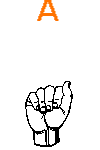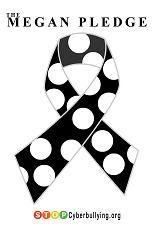Dear Aspies Who Don't Want To Be Called Autistic:
Come meet my son. He's in the top math and reading groups, too. His main difference from you? You can use language better. We know a lot os Aspies who cannot function as well in the classroom as my son, despite their language-use strengths. Your strengths and weaknesses may be different, but that doesn't make you better than him, or him better than you. Hence "different."
Yes, Asperger's Syndrome looks different than PDD-NOS, or "classic" autism, or even Rhett's (which I understand they are going to remove altogether). But the DSM is about biology, not identity. Not everyone displays all manifestations of any condition, and grouping those who display certain sets is a way to help them understand what they might need; but that doesn't- and shouldn't- change the diagnosis if the underlying biology remains the same. Kind of like everyone is human, no matter their need for suntan lotion.
In our little enclave, we have a number of kids with varying kind of autism. Am I entirely convinced there is one sole cause? No, but whatever the trigger or cause, the results are similar: the brain is "wired" differently from the majority of the population, and the results are a different experience of the world, a different way of handling and understanding experience, and a difference in the way the body and brain handles messages (both coming and going). What specifics result in one child being able to talk, and another not? And do those specifics mean that one child should have a completely different diagnosis from another? How is my child similar to, and different from, a child who has difficulty walking as well as talking? A child who is having a harder time acquiring skills? A child with more severe internal issues as well as external issues? Is it a matter of degree?
I am always fascinated by the idea of Asperger's Syndrome being understood as "Autism Lite." There is an assumption that all Asperger's kids are "high functioning", but I am having trouble understanding what people mean- because the apparent meaning that speech is a skill that trumps all others just doesn't make sense. The child down the street speaks better than Joey, but has a lot more anxiety and sensory issues. I will never forget the older child that came to OT after Joey a year or so ago, who could speak beautifully and always had. However, he insisted on playing with my hair (as in, he just walked over one day and started playing, no preamble), refused to sit in a chair, and spoke beautifully and perfectly, as long as you were talking about space*. As long as you couched everything in terms of planets, spaceships, lasers, and Star Wars, all was good. And when he got particularly anxious, everyone around him weren't people- they were planets. I thought it kind of fun being a planet, but didn't go over so well with his teachers and classmates, and it often got in the way of participating in activities or lessons.
Does this child's perfect grammar and solid diction trump the fact that he could only speak on one subject? Does that make him "higher" functioning than Joey? Is Joey "higher" functioning than this child, since Joey can follow lessons and participate in a regular classroom? Hmmm. Again, we find ourselves mired in semantics. What is "high" functioning? Are all aspies automatically and by definition "high" functioning? And if is the answer is yes, does that make them different at a biological level from someone like Joey, or are we grouping people together by similar symptoms of the same condition, like separating humans by race (or even ethnicity)? Should we quibble about who is more disabled than whom?
Personally, I think there is nothing wrong with celebrating ethnicity, even race, as long as we all agree we are all human. These identities are not about being better than others, it is about being different and diverse. Being different makes the world fun and gives us plenty to share and think about, gives us different perspectives to consider. No difference is "better" or "higher", they are just different.
*I'm actually changing the specific topic, because the topic he liked was so specific and particular, it might be a privacy issue.
Subscribe to:
Post Comments (Atom)




















5 comments:
I know we are all struggling to get to a point where ALL are part of the autistic spectrum, regardless of whether high or low functioning, severely or mildly afflicted. Where we all agree seems to be that the wiring is different. The thing about the Hub is that the continuum doesn't seem to matter.
This is a good vingnette of how autism is expressed, gained from careful observation.
We don't know what the future holds for our kids, but honest to God, Joey is so cute (well, Andy, too), and he reminds me of a professor I just loved who taught intro to Special ED. I wish Ben would allow me to put pictures of himself on the hub...ya tend to grow to care about the kids from their pictures and stories. Twenty years from now, will we still be singing our childrens praises on the Hub? I hope so...
His main difference from you? You can use language better.
Yeah, but I'm a grown up--who knows how Joey will be similar and different to me when he's also an adult? (I do get that this was rhetorical, but I thought it was also worth answering.)
That's the main problem I have with so many adults--self-advocates who are dxed AS or parents who seem to loathe the self advocates (one springs to mind in particular). No one can compare a child to an adult. We can't know how Joey is going to grow, and learn, and become the best Joey he can be, and we can't retroactively alter my childhood to make me present more or less autistically. Trying to compare where I am now--college graduate, holding a job down, living on my own--and where Joey or any other kid is now is illogical (for kids on AND off the spectrum!), and it also speaks to only one subset of issues for those on the spectrum. I have a pretty good grasp on self-sufficiency and self-care skills, but I can't keep up conversations very well or make eye-contact consistently, and the variety of foods I won't eat is a little appalling.
I see a lot of myself as a child in Joey, in Kristina's Charlie, in Emily's TH. All of the children on the hub remind me of me in little ways, because despite the great variety in presentations amongst us all, we are all autistic. I'm not better than anyone because I escaped recognition until I was a young adult, just different and a product of a different time--and just because my label says AS doesn't mean I suddenly am not autistic.
I was autistic the whole time. I've just been waiting for everyone else to notice.
Lovely post as always. If you ever decide to head to the Richmond AS meetup, let me know--it'd be well worth the drive to say hi.
*applause*
It's a great thing that Joey is marvelous in his math. Children with aspergers syndrome have outstanding rote memory, but analyzing the world in a different way and have impenetrability with social, emotional and communication skills.
Wow. Thank you for opening my eyes with this post.
*more applause*
Post a Comment